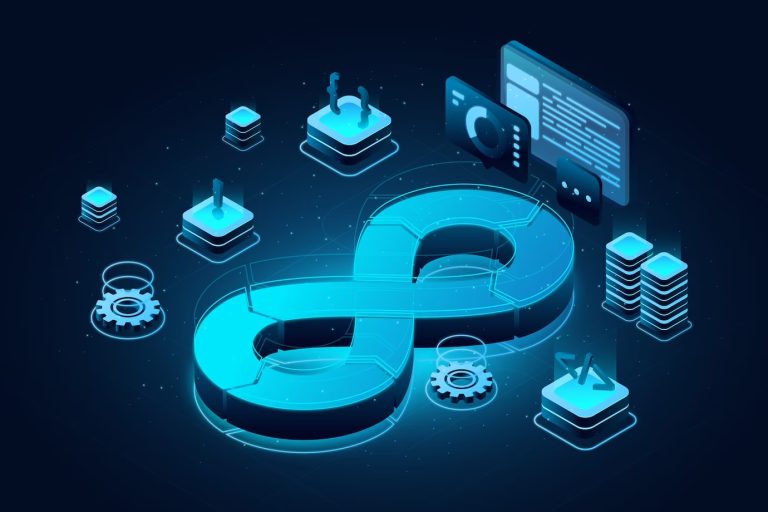Developed in 2009, Node.js language is used in servers to run different programs. More 600,000 internet based sites use the language. Some benefits that Walmart, Netflix, Medium have obtained from implementing Node JS are increased productivity in developers by 68 percent. They have seen application performance increase by 48 percent, and customer experience increase by 13 percent.
How Node.js works
Node.js helps in analysing, tracking and detecting interactions or events carried between users and the site. It starts output – input tasks such as reading files https://trenizz.com/and does not wait for more instructions to be done before running the code. This process is termed as I/O non-blocking.
Node.js is asynchronous and this means that when a response from the server or database is sent, a function to call another function is run. Termed as callback, this function prevents repeat of instructions when it is done the first time.
Node.js takes instructions from users or clients and uses threads to carry out the operations. The instructions are completed on the server and the browser is not impacted. As a result, extra requests can be handled concurrently in a single thread. The effect is reduced load on the server.
How Node.js helps in web development
Some areas where Node.js helps developers are:
Scaling: Developers can easily scale applications with Node.js. This scaling allows the website to increase offerings, add products, and carry out other tasks with less complexity.
Diverse apps: Node.js is used in creating applications for gaming and chats, applications that run in a frame of time that is current to users. It helps create tools used for communication by communities, such as Slack, and web forms that are single page applications. It is also put to use in architecture of microservices, internet of things, and for tools that are run from the command line.
Comprehensive Suite: Node.js is created for Chrome V8 engine. As a result JS is converted quickly into machine code, allowing processes to run faster. The feature of using one thread helps to handle multiple requests, while utilising less computer resources. It has a suite of tools that help in carrying out read/ write of databases, accessing files systems fast.
Streaming data: Node.js separately manages HTTP requests and the appropriate response. The property allows for stream of data, processing of files at a rapid rate, and smoothly. Therefore, videos and audio can be run directly from the online resources.
Caching: It keeps 1 module in the memory of the application. When you ask for the module during the next transaction, the information is offered quickly. Therefore, there is no need to send and run the instructions fully. This gives better speed and performance.
Expandable: Along with scaling, Node.js is extensible. This feature allows apps to be expanded, and customised with additional functionality.
Technology stacks: The full-stack development advantages are available with Node.js. The resulting use is that reusing, sharing of the program, among teams is facilitated. This feature increases the performance of teams, the productivity, and accuracy.
Support for JSON: JSON is a type of JS (JavaScript) framework. It supports Node.js in a number of scripts done for the server. Binary models are not converted, and this feature is useful in creating RESTful APIs used in microservice architecture. These APIs are employed by Twitter, Meta, online sellers to link different applications that are used in web and mobile.
Code sharing: Included in Node.js is the NPM or node-pack-manager. The NPM carries with it several modules that can be used for some functionality. As a result, time of writing the code each time is saved. Other tasks such as testing the modules, removing problems are not needed. NPM helps in creating the applications faster and with fewer problems.
Node.js frameworks: Node.js has many small frameworks used for special tasks. Nest.js is used to build enterprise-wide projects. It has libraries to implement, https://smarttrand.com/Model-View-Presenter, Typescript, Function Points, and others. Express.js with its HTTP helpers helps in development of apps for hand held machines and API apps. Socket.io is used for real-time connectivity in bi-directional mode while supporting binary, reconnection, and multiplexing.
Cross-platform compatibility: A good feature of Node.js is that it is suitable for many platforms. As a result, separate programs are not necessary for different systems. The flexibility reduces the need to code separately for diverse devices and platforms. A consistent user experience is given across all devices such as mobile, handheld, laptops, and others.
Enterprise applications: Node.js is used in enterprise-level applications since apps can be expanded and performance improved. Features such as compatibility with different database systems and in handling complex business logic, help in creating scalable and dynamic applications. Walmart used it to manage the Black Friday sales since the customer load on the server was huge.
Modules: Node.js has a modular structure. Modules include file systems, HTTP, Crypto, and several others. Developers modify these modules or create new ones with less effort to obtain the required functionality. It is possible to promote code modularity and maintain it without excessive effort.
Conclusions
NodeJS is considered a modern tool for Web Application Development that provides a powerful and effective way for implementing high-performance scalable applications. The framework helps in carrying out several tasks such as scaling and expanding application design so that new functionality can be added. It is used to create diverse applications and several firms such as Netflix, PayPal, Slack, Walmart use Node.js.
Node.js provides more features and functions for a site. Reusing code, sharing, support by other frameworks, streaming, and other features reduce the efforts, time, and resources needed for web application development. The conclusion is that Node.js has a key role in web development.
Author Name
Harikrishna Kundariya
Biography
Harikrishna Kundariya, a marketer, developer, IoT, Cloud & AWS savvy, co-founder, Director ofeSparkBiz Technologies. His 14+ years of experience enables him to provide digital solutions to new start-ups based on IoT and SaaS applications.

